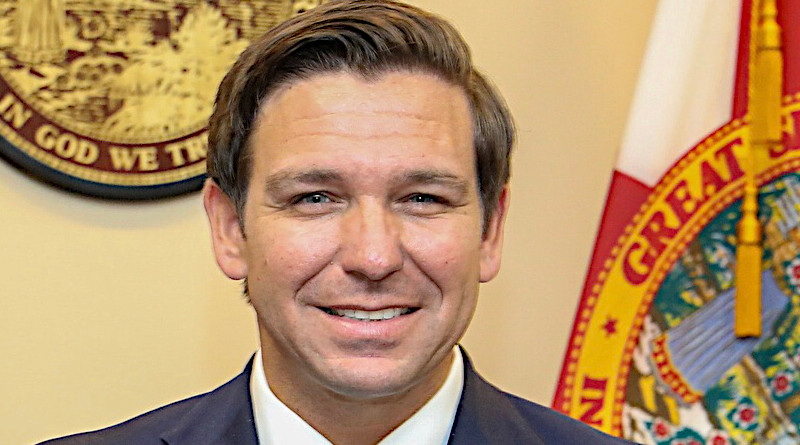Florida’s Governor DeSantis Chooses Liberty Over Mandates – OpEd
As the COVID-19 pandemic persists, many governments are imposing (or reimposing) mandates, lockdowns, and in general, restrictions on business activity and personal behavior. Meanwhile, Florida Governor Ron DeSantis has stood (mostly) firm in opposing government mandates.
At the state level, DeSantis is not restricting economic activity nor mandating personal behavior, noting that the prevalence of coronavirus infections varies from one local area to another. Local governments can impose their own restrictions, but even here, DeSantis has limited what local governments can do.
Local governments are not allowed to prohibit anyone from working or operating a business, are not allowed to require restaurants to operate below 50 percent capacity, and must demonstrate a public health reason to mandate operating below 100 percent capacity. Florida businesses cannot be required to cease operating.
Local governments can require that people wear masks, but they are prohibited from collecting penalties or fines for non-compliance. These policies date back to a September 25 order, and Governor DeSantis reiterated his stance last week that Florida will stick with those policies, even as many states are reimposing mandates in response to the virus.
In Florida, schools are open, restaurants are open, bars are open, gyms are open, hair salons are open, churches are open–everything is open. People who think it is too risky to go to those places don’t have to go, but Floridians have the freedom to make those decisions themselves rather than have the nanny state make their decisions for them.
Governor DeSantis recognizes that mandates and lockdowns violate individual rights. Freedom only exists when people are free to make choices that others view as poor choices. Governor DeSantis has demonstrated his commitment to preserve individual rights, as should anyone who holds a position in a government dedicated to the preservation of liberty.
I see clear value in wearing masks, social distancing, and avoiding indoor locations with many people. But just because something is a good idea does not mean it should be legally required. In a free country, people should be able to choose the level of risk they want to bear, especially when the alternative deprives them of their economic right to earn a living.
There is a trade-off involved in protecting individual rights and imposing mandates to slow the spread of the virus. Science can inform individuals as to what appears to be prudent behavior, but the appropriate government policy cannot be determined by science, as I noted in a previous post. Take the example of speed limits for motor vehicles. Science can tell us that higher speed limits will result in more fatalities, but it cannot weigh the value of more rapid transportation against the risk of accidental death.
The same is true with regard to government policies in response to the virus. There are clear short-term economic costs to the mandates that have been imposed, but there are also long-term costs in that precedents have been set that governments can suspend individuals’ rights to earn a living if officials view it as in the public interest.
In a nation that, at its founding, declared life, liberty, and the pursuit of happiness to be unalienable rights, Governor DeSantis should be applauded for his support of liberty over government mandates. He is supporting the principles upon which our nation was founded.
This article was published by The Beacon

